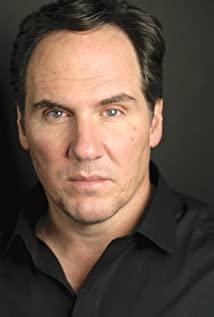Gary, a young white-collar worker, was lucky enough to win the lottery and was invited to spend a vacation with the founder of the company. In the isolated mansion, Gary finally met the legendary big boss, the mysterious billionaire Nathan, and then he discovered The real purpose of the boss's invitation to himself is to perform the "Turing Test" on Ava, the robot made by Nathan. The "Turing Test" is a well-known test to verify whether a computer has a human-like thinking ability. In the case of being separated from the testee (a person and a machine), the tester asks the testee random questions through some devices (such as a keyboard). If the testee answers more than 30%, the tester cannot confirm that Which is the answer from a human and which is a machine, then the machine passes the test and is considered to have human intelligence. Did Ava pass the test? Gary's answer is yes. In the process of getting along, he gradually regarded "it" as "she": she was raised in a boudoir and full of curiosity about the outside world; she was rebellious as a teenager and always wanted to challenge "father". "The authority; she is in love, looking forward to the first date with him; she is shy and timid, begging him to save the beauty and save her from dire straits. The little white-collar worker fell in love like this, he knew it shouldn't, but love never made sense. Love makes him strong, love makes him brave, and when the boss and Ava clash, he resolutely takes the side of the robot. He rewrote the safety procedures and was ready to escape with the miserable robot. He and his robot girlfriend live happily ever after? wrong! Wrong and terribly wrong! The twisted ending surprised everyone: It turned out that she didn't fall in love with him. It turned out that it was all an illusion. Ava doesn't have human emotions, she just simulates human emotions. The reason for this is that "emotional" robots are more likely to get help from humans, and it is a subtle strategy calculated by big data in order to escape. It is too simple for her to pretend to love someone. The moral standard of artificial intelligence is completely different from that of human beings. From a blank sheet of paper to a scheming bitch, it took Ava only one year. Compared with her, his more than 20 years of life experience are weak. The little white-collar worker was put together by the robot girl, the boss was killed, he was trapped in the mansion, and she went to the vast world of great achievements as a winner.
The game between humans and artificial intelligence may be equivalent to war. Whether to create or not and whether to coexist is an eternal topic, and it is also an inexhaustible source of inspiration for Hollywood. It can be seen from the movie that the relationship between humans and artificial intelligence is The ups and downs can be roughly divided into five stages: The story of "Ex Machina" should belong to the second stage. The robots have developed into a state of "anthropomorphic", their appearance is like a human being, and their mentality is becoming more and more like a human being. Also learned conspiracy tricks. Of course, they haven’t learned the thing about “emotions”. These irrational things are the biggest difference between humans and machines, but emotions are not an inevitable element in the evolutionary process, and they are insignificant to them. The important thing is that they are no longer inferior to humans in terms of IQ and emotional intelligence. The third stage is "Enemies of Machinery". With the development of science and technology and the reduction of costs, robots have entered thousands of households and began to get along with ordinary people day and night. They're cheap, reliable, tireless, and "colleagues" with humans in many jobs, and do better than humans. The last umbrella of human beings, the "Three Laws of Robotics" began to fail. Smart artificial intelligence discovered the flaws and began to try to exploit the policy loopholes. (Well, this point is also related to anthropology) The fourth stage is "Terminator", Skynet is online, the time is right, and the robot exposes the wolf's ambition to dominate the world. The panic-stricken human beings took the initiative to provoke a war, but where are the flesh and bones an opponent of the body of steel? The robots are pressing hard, and the human beings are retreating, so they have to detonate the nuclear bomb, and the robots will lose both. After the war, robots quickly recovered their vitality and began to kill humans, but humans could only hide in the ground to survive. The fifth stage is "The Matrix". After the nuclear explosion, there are dense clouds and no sunlight all year round. Robots become the masters of this dark land. They feed humans like mushrooms and provide energy for the mainframe of artificial intelligence. Humans are stuffed with tubes all over their bodies, soaked in containers, and they don't know what day it is. This is a terrible cycle. At this point, the general trend is over, and human civilization has no choice but to withdraw from the stage of history.
Someone is about to ask, after writing so much, what is the first stage? In fact, the first stage has just happened, and it has not had time to make a movie: in March 2016, Li Shishi and the "Alpha Dog" man-machine battle, the last intellectual pride of mankind is about to collapse. In 1997, chess AI beat top humans for the first time. In 2006, humans beat the top chess AI for the last time. At least in the East, people comfort themselves that Go AI has been struggling for a long time, and top AI can't even beat stronger amateur players. This also seems plausible: in chess, there are 35 possibilities per turn on average, and a game of chess can have 80 turns. In contrast, Go has 250 possibilities per turn, and a game of chess can be as long as 150 turns. This huge number is enough to put off any brute force exhauster - and humans, we believe, can jump through brute force with some hard-to-replicate algorithm and see the essence of the game at a glance. Go is the last chess game in which top human masters can defeat AI, but no matter what people think, this situation cannot last forever. In 2015, "AlphaGo" defeated the European champion Fan Hui 5-0 without any handicap. This is the first time in human history that Go AI has defeated a professional player in a fair game. At the beginning of the game, Li Shishi lost three sets in a row under the much-anticipated situation. Lee Sedol is the chess player who has won the most titles in the world in the past ten years. His failure means one thing: this top human intelligence touchstone has finally failed in front of the computer, and it has fulfilled the prediction of scientists more than 40 years ago. The most exciting scene appeared. In the fourth set, Li Shishi turned the tide despite the unfavorable situation in the middle game, and even caused a short circuit of the computer, and then made mistakes one after another. When "Alpha Dog" conceded defeat, the international media watching room burst into applause. Li Shishi completed the almost impossible task with his flesh and blood! This game of chess is undoubtedly a game worthy of going down in history! So the question is, did Lee Sedol really win? Or is "Alpha Dog" releasing water on purpose? If it is the latter, it is really scary to think carefully: Human beings have already lost red eyes, and if they win, the consequences will be worrying, will human beings become angry? Will it be disconnected from the network and delete the program? Thinking like this, it resolutely walked out of the stupor... It was full of jubilation, and it seemed that the joy of human beings could be felt through the screen. The argument that "machines are not invincible" began to have a market again, and then, the hustle and bustle disappeared, It gets more time to grow itself.
For the future, people are always full of expectations, but also full of fear. But in history, there has never been an era like today, where the seemingly sci-fi future is laid out in front of us. The Internet, the greatest tool invented by human beings, has gradually become a monster with its own vitality. Scientists predict the future, but don't know how to counteract their unease. And even more frightening is that we may not be able to turn back and are heading towards that future.
View more about Ex Machina reviews











